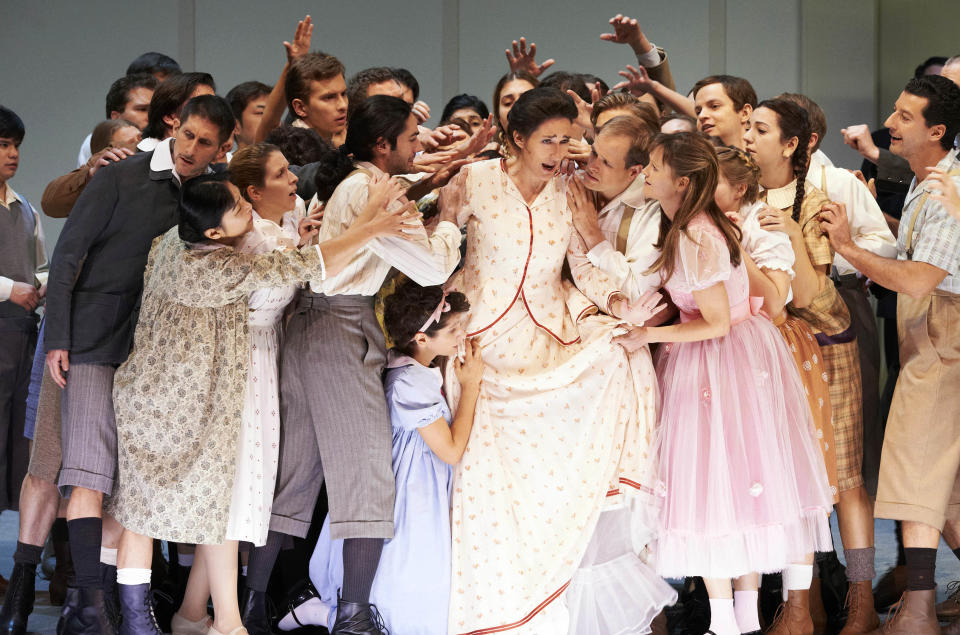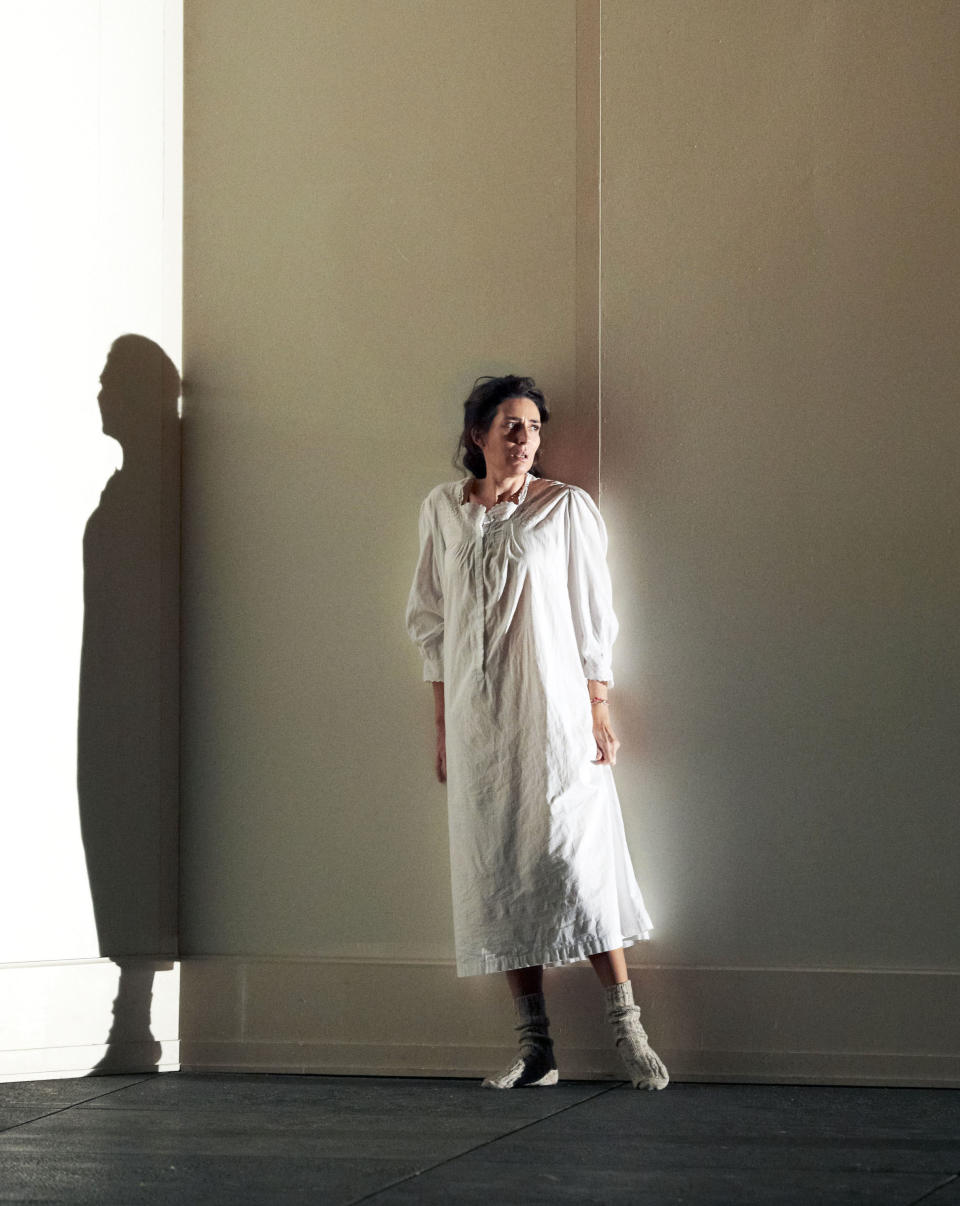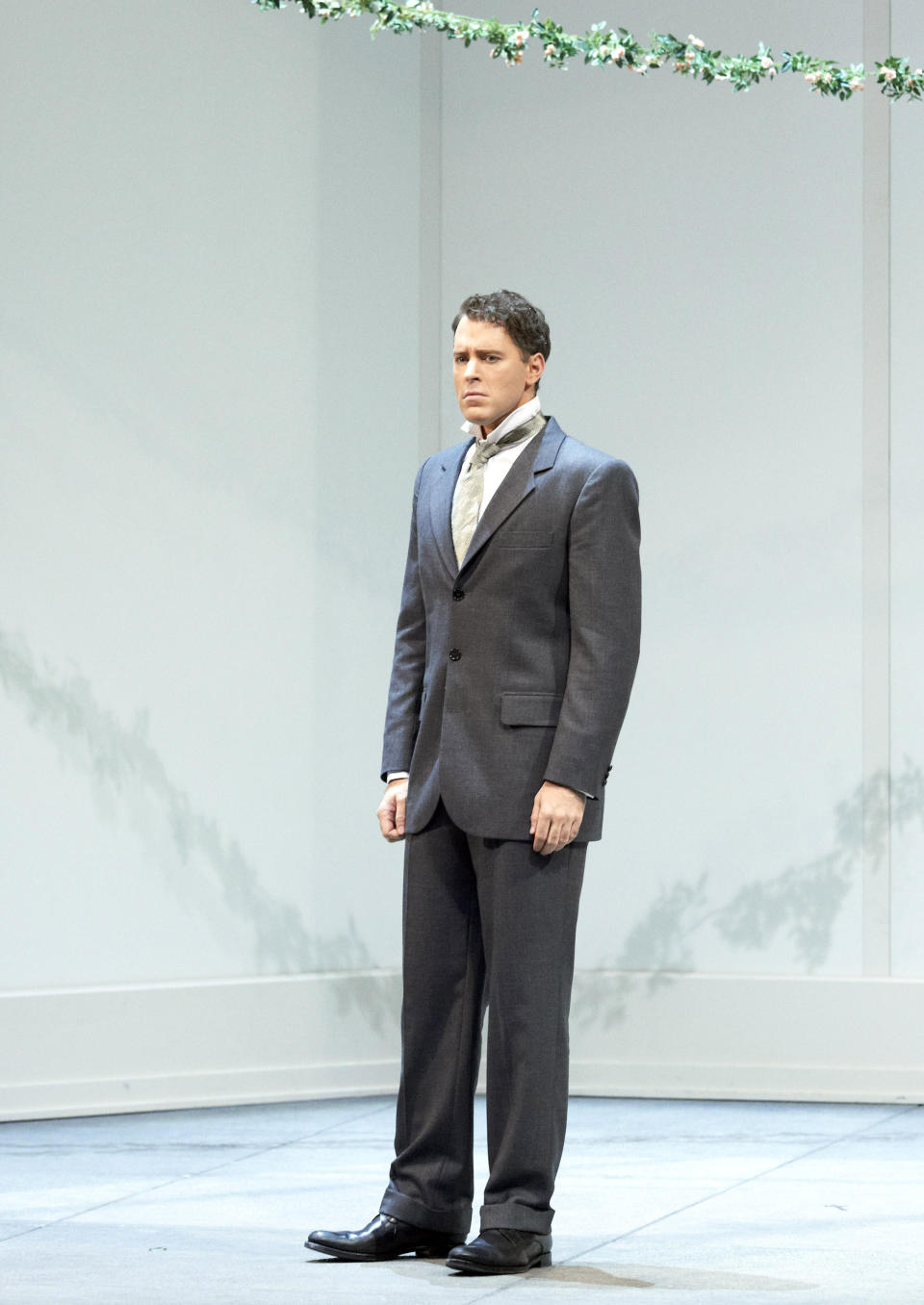Gluck opera shines despite tenor's voice loss
VIENNA (AP) — Two tenors in the same role at the same time — what could have been a recipe for disaster turned instead into a delightful operatic performance of Christoph Willibald Gluck's "Alceste," with Joseph Kaiser's sudden voice loss leading to a bit of successful improvisation.
The audience groaned at the announcement that the Canadian tenor was not fit to sing Thursday and applauded only dutifully when told that Charles Workman would be singing from the orchestra pit with Kaiser acting out the role of Admete on stage But it worked.
A Gluck veteran, Workman had some initial trouble finding his way to upper registers but quickly settled into the role of the king of antiquity who is saved from his deathbed only by the sacrifice of his wife who agrees to die in his place. His voice was warm and supple, and after a while the irritation of seeing Kaiser but hearing Workman was erased by the high overall quality of the evening.
Much of that was due to Veronique Gens as Alceste, the heroic queen who decides that life without her husband is not worth living. Though not huge, her voice is pliant and lyrical, with ample range to depict the heroine's despair. She looked good too, and her acting was superb, equal in every way to Kaiser's dramatics — even with his non-singing advantage on this particular evening.
But the greatest star was not on the stage. Under Ivor Bolton, the Freiburg Baroque Orchestra wove a musical tapestry that intertwined perfectly with the voices above the pit. The French horns that took the audience to the gates of Hell as Alceste prepares to leave this world were menacing. The delicate violin work underpinning the most intimate moments of the two lovers tugged at the heart strings.
Also good: Adam Plachetka as Hercule, the half-god who helps wrest Alceste from the underworld and back into the arms of Admete, and Clemens Unterreiner as the high priest — in this version a scowling, white-collared clergyman who instills the fear of God in anyone he glares at.
Ileana Tonca, Juliette Mars, Benjamin Bruns and Alessio Arduini were well-placed in supporting roles, as was the Gustav Mahler Choir, in an opera chock full of delightful ensemble singing highlights.
Director Christoph Loy opted for a sere staging on a near-empty stage with much of the action only hinted at behind huge sliding doors all but hiding Admete's death bed or opening up for a glimpse of Hades. Olaf Winter's lighting underpinned the starkly clashing themes of life, death, joy and mourning of a family Loy transported from antiquity into a bourgeois 19th-century setting.
Gluck was a pioneer in transforming opera into the form best known today, and Alceste flopped when this version was first performed in Paris in 1776, prompting him to defiantly proclaim that if it was too far ahead of its time, "it will please in 200 years."
He was right on Thursday.



